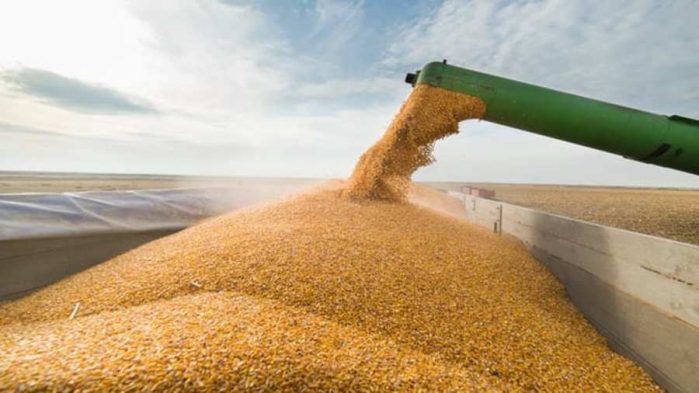By Emmanuel Atamba
The Human Right to Food is yet to be fully realised in Kenya. More than 10 million Kenyans suffer from chronic food insecurity. One-quarter of children under 5 years old are stunted. Millions of Kenyans depend on emergency food aid and 1 in 5 families would not meet the minimum food requirement even if they spent all their income on food. Additionally, obesity and diet related diseases are on the rise in Kenya raising questions on the diversity, safety and quality of the food.
Conservation and sustainable use of biodiversity for food and agriculture is a viable approach in addressing the food and nutrition security problems in Kenya. This position is informed by the Food and Agriculture Organisation’s State of the World’s Biodiversity for Food and Agriculture Report released in February 2019, among other resources. The report, formed through compilation of 91 country reports – Kenya included – concludes that Biodiversity for Food and Agriculture (BFA) is declining worldwide, and calls for concerted efforts to prevent further decline. In the report, FAO Secretary General, José Graziano da Silva, highlights the importance of BFA in achieving zero hunger, food and nutrition security for all and urges efforts to conserve BFA for realisation of the aspirations of a food secure world and sustainable food systems.
State of biodiversity for food and agriculture in Kenya
The report identifies pollution, use of external inputs, trade and market forces among key drivers of biodiversity loss. Further, it points out significant negative impacts of the two drivers on animal and plant genetic resources, associated biodiversity, ecosystem services and wild foods against different production systems. Plant genetic resources in both irrigated and rain fed systems face strong negative effects from environmental pollution, use of external inputs, market trends and trade.
Plant and animal genetic resources and associated biodiversity in mixed farming systems also face decline with strong negative effects coming from all drivers of biodiversity loss studied in the report. Pollination, among other ecosystem services was also reported to be negatively affected by pollution and use of external inputs. Pollination, pest and disease regulation, nutrient and water cycling which are important in sustaining agricultural productivity and healthy agro-ecosystems were reported to be declining.
Relevance to the Human Right to Food
Kenya’s farming system has for the past four decades moved towards a more industrial model of production. This model, in many ways, downplays the role of biodiversity and it is functioning in enhancing agricultural productivity, food quality, dietary diversity and the resilience of farms and food systems to shocks. The approach has led to a significant loss of agricultural and associated biodiversity.
The continued disregard of BFA components and their resultant exposure to risks of further loss poses a substantial risk to agro-ecosystems and resilience of communities to climate change and in turn, affect food production and access. This deepens the vulnerability of Kenyans to chronic hunger and malnutrition and undermines the realisation of the Right to Food in Kenya, which is provided for in Article 43 of the Constitution.
Relationship between biodiversity and food security
Kenya’s varied geography and agro-ecological conditions, as well as its diversity of people, communities and cultures, lays the foundation for a country with a rich diversity of crops, livestock and associated biodiversity. The knowledge and traditions regarding food and farming practices are however slowly fading to pave way for the production and consumption of staples under monocultures, encouraging overreliance on external inputs with promised better returns for farmers and food for all.
At a political level, agricultural development policy is pushing for an industrial model of farming and livestock breeding, which threatens the sustainable use and conservation of BFA by instilling farming practices that are not friendly to the agro-ecosystems in which they are applied. The approach bypasses knowledge on local biodiversity and its functioning, held by farmers and rural communities. As a result of prohibitive costs and unfair standards, many government and private sector-led initiatives exclude the majority of small-scale farmers and households from profitably participating in commercial farming, using their eco-friendly practices.
Dietary diversity in Kenya is on the decline. Based on three studies conducted in Meru, Kitui and Northern Kenya, more than 30 per cent of Kenyans living in rural areas have a dietary diversity score of less than four from a possible 12 food groups identified by FAO and the World Food Programme. Studies have confirmed that there is a strong correlation between low dietary diversity and malnutrition, obesity and other nutrition deficiency related conditions.
The decline in dietary diversity in Kenya is fueled by the continued focus on mainstream foods and staples, such as maize, rice or potatoes. The lack of budgetary and policy support towards the production of non-mainstream, indigenous foods such as wild foods, pulses, root crops and oil crops means they are less readily available in local markets.
Solutions orientation
To enhance conservation and sustainable use of BFA in Kenya, the following approaches should be adopted. At the highest political levels, Kenya needs to mainstream environmentally friendly farming practices, conscious trade and consumer behavior through policy, government investment and financing – both private and public. Secondly, government-led initiatives and civil society actors should create awareness on the importance and means of BFA conservation. Lastly, investment in research and documentation on farming practices and approaches that can sustainable use, hence improve the role of biodiversity in food production, enhancing resilience of farms, households and communities to effects of climate change, natural disasters and calamities.
Emmanuel Atamba is the Route to Food Initiative Youth Ambassador









